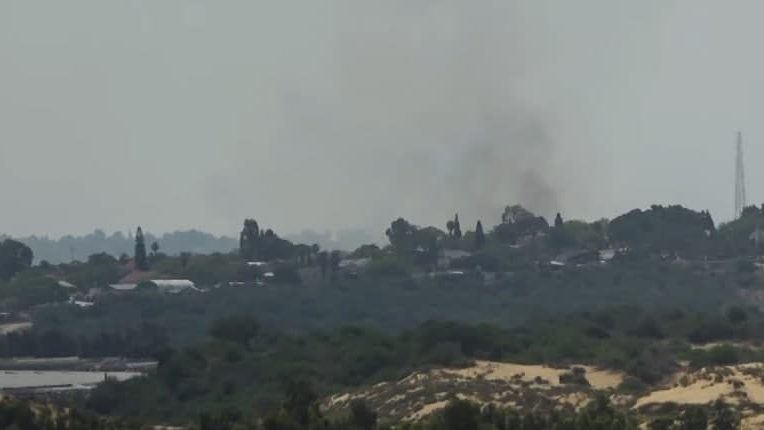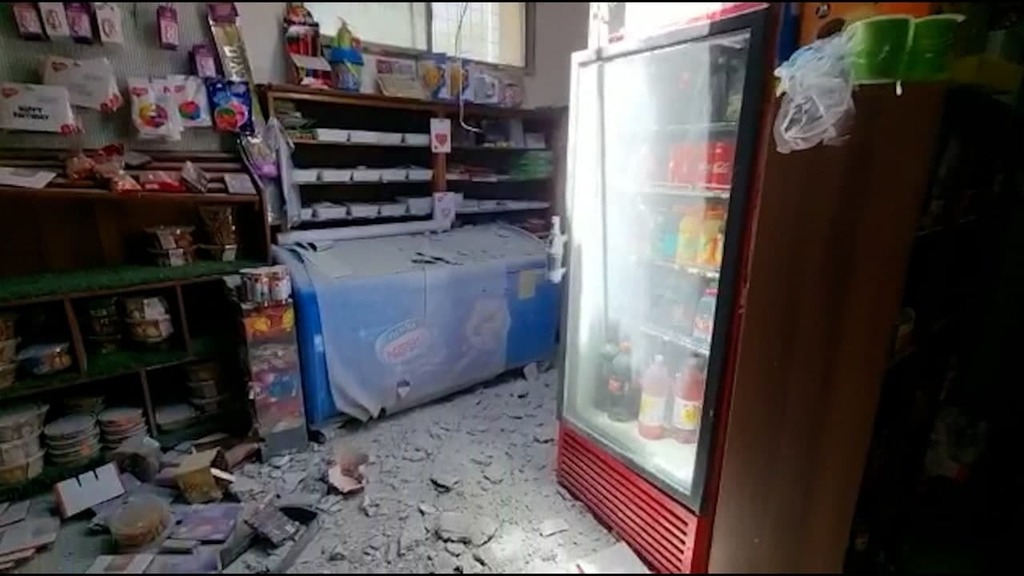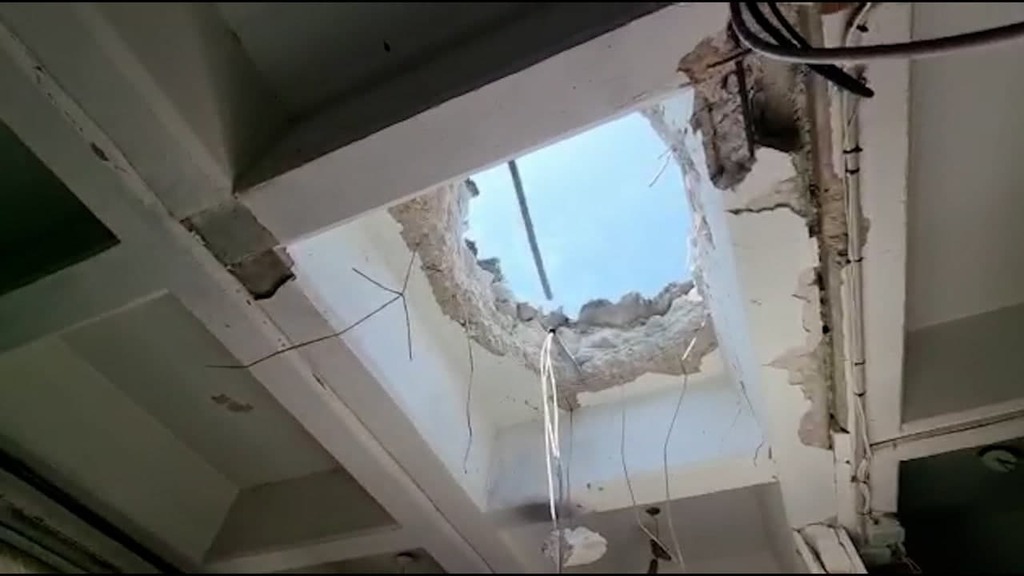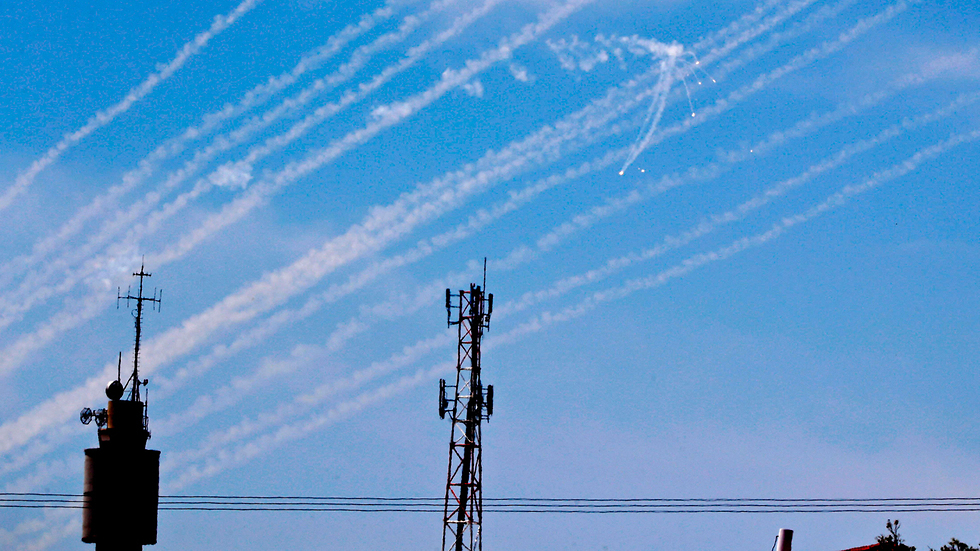In a small Israeli village bordering the Gaza Strip, people have stopped rushing into air raid shelters and evacuees have returned, but they wonder how long the calm will last.
A high concrete barrier separates Netiv Haasara, population 880, from the crowded Palestinian enclave. On the Israeli side, the wall is painted green and blue, to suggest rolling fields under an open sky.
Some 200 meters (about 218 yards) from the village's homes and greenhouses lies the northern edge of the Gaza Strip, ruled by terror group Hamas, much of it in ruins after the latest devastating conflict with Israel.
Prime Minister Benjamin Netanyahu said the 11-day air and artillery campaign had killed "200 terrorists" and set back Hamas and its capacity to attack Israel by "many years".
Israeli farmer Shaike Shaked says he feels "much safer and more at ease" since Friday's ceasefire, even as he stood fully behind the military campaign against Hamas and other armed Islamist groups.
"The more they're hit, the longer we have peace," Shaked said. "But it won't last more than five years, maybe 10 this time."
Just three days ago, the agricultural cooperative resembled a ghost town after the Israeli army had asked its residents to leave, although many chose to hunker down and stay.
After the truce, village residents sipped their morning coffee on the porch, watching Israeli tanks roll out of town after their latest combat deployment here.
The people of the agricultural collective, founded in 1982, long ago got used to cross-border rockets, mortar fire and spikes in heavy bombardment, which often ends as rapidly as it starts.
The Ambers, an elderly couple, have returned to the routine they gave up on May 10 when the first rockets were fired towards Israel, in response to violent clashes in Jerusalem's Al-Aqsa mosque compound.
Sarah has resumed gardening and yoga, and her husband is back to playing bridge.
"It's nice not to live glued to the shelter," she said. Fire from Gaza claimed 12 lives in Israel, including one child and an Arab-Israeli teenager, an Israeli soldier, one Indian and two Thai nationals, medics say. Some 357 people in Israel were wounded. The majority of rockets either exploded away from houses or were intercepted by Israel's Iron Dome air defenses.
In Gaza, Israeli bombardment has killed 248 Palestinians, including 66 children, and wounded more than 1,900 people, the enclave's health ministry says.
Just days ago, the Israeli village had been largely evacuated, but Gil Nir stayed put, like several other veterans of the collective. He spent the 11 days at home, inside his bunker turned office with 40 centimeter (15 inch) thick walls of reinforced concrete.
"If a missile falls, it's fine," he said. But, he added, the shelter might not withstand more than one impact.
Nir said he believed this fourth Israeli war on Gaza since 2008 should have lasted longer. "I was disappointed the government decided not to finish the operation because of international pressure, even if the army - and we too - were prepared to continue," he said.
It was a "problem" that Hamas still had "all that ammunition left over", he said. But he added that he trusts the Israeli army, saying that "if something starts up again over there, they will see it with their binoculars".
Another resident, Avital Shabbat, recounted how she kept her grocery-store-cum-bunker open throughout the latest flare-up in violence. She said that in recent days she had witnessed "the worst rocket salvoes in 20 years".
But in the end it was a mortar round, fired from just behind the border, that came crashing down through the roof and into the frozen food isle, without wounding anyone. As the sound of heavy bombing and the wail of air raid sirens have ended, southern Israel has slowly started to return to normal life. Schools opened for half a day at the start of the Israeli week Sunday to give children the time to re-acclimatize to life without rockets.
Efrat Miller, 41, said her son had struggled to re-adjust after spending days on end camped out in a bomb shelter. "It took two days for my son to feel safe enough to go back to his bed," she said. "I told my son there is a ceasefire and he said: 'Well, until when?'"





